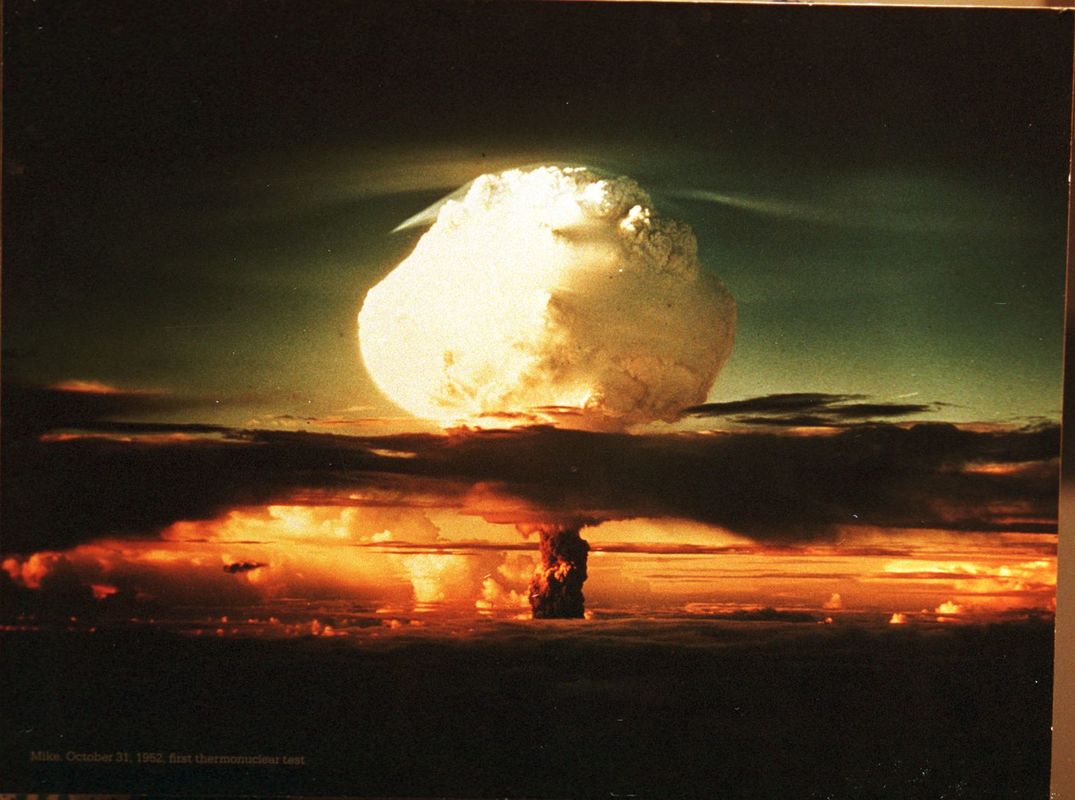- Home
-
Articles
-
2017
>
- North Korea; A Reflection of a Global Hybrid Conflict
- Turkish Crisis: World War III but nobody knows what side they are on?
- Glaciers or Rising Oceans; Damned if you do, damned if don’t, And maybe both
- Walls, Walls, Walls
- France's Hybrid Civil War
- Predictions of space exploration for the next 500 years
-
2018
>
- NOAA shows a modest 3.2mm sea level rise over the last year. How significant is the current sea level raise from a geological perspective?
- Mexico’s Quasi Hybrid Insurgency and a Reflection on Murder Rate Statistics
- Russia strives for imperial might in the context of the first World Hybrid War
- Paleohydrological events from the late Pleistocene to the early Holocene 30kya to 1500 AD
-
2019
>
- Micro Interglacial Cycles and an alternative understanding to Sea Level Fluctuations from a Paleoclimatic Perspective the Last 140,000 years
- Increasing Summer Insolation of the Northern Hemisphere Trends Towards Reduced Ice Volume; Coupled by a 400,000 year Eccentricity Cycle Extending the Holocene Interglacial
- Why are the Chinese Grumpy: Up to 500 million people died from famine, natural disasters, war, political suppression, ethnic cleansing, pestilence and such the last 2200 years
- China's New Dynasty: Middle Class, Automobile, Science, and Robot Revolution
- Orbital Variations Effects on Interglacial Behavior and Paleohydrological Events during the Quaternary Ice Age: A Compilation of MOTM editorial pieces
- Native American Society and Civilization Collapse Part I; Old World Diseases and Expansion/Collapse of Empires not Unique to European Colonization
-
2020
>
- The History of the “Sieg Heil” Nazi Salute and its shared common origins with the Roman Salute, Bellamy salute, and the swearing in of the Mexico President; And the not so innocent raising of the Fist of Black power
- In the excitement of the 2019-2020 Bush Fires in Australia; people have forgotten about the Legendary Australian Bush Fire of 1974-1975. The Current Bush Fire doesn’t even hold a torch up to it
- Covid 19 Crisis; what does age have to do about it in Italy, forgotten cancer crisis caused by the financial crisis in 2009, and why Africa doesn’t care
- A Quick Look at Nuclear Power in 2020 and Beyond
- India: Rising Economic Star with a Contentious and Troubling Past
-
2017
>
- BulletinNews
- MOTM EM
- Video
- Meetings/Symposium
- Podcasts
- Contributing Organizations
|
On August 6, 1945 the first nuclear bomb was dropped on a city known as Hiroshima. Three days later a second atomic bomb was dropped on Nagasaki. Both bombs killed roughly 126,000-226,000 people and possibly more. These bombs changed the way superpowers confront each other and the nature of how wars are fought forever. But what if history took a different turn. What if Germany invaded Russia one month sooner. What if Hitler did not listen to Herman Goring, and Germany did not lose 250,000 troops at Stalingrad and possibly won the battle of Kursk. What if Germany did not wait until 1943 to go into Full War Production, and they had adequate supplies to defeat Russia from 1941-1942. Or possibly Italy successfully beat Britain in Egypt and conquered all of North Africa. It would have been a truly interesting turn of fate, Germany would now have unlimited amounts of oil to build their war machine and would no longer have any shortages of equipment, supplies, Oil, and technology to defeat Britain or at least consolidate their power in Europe. Many of these ideas are not far fetched either, several countries in 1941 were already moving toward full war production, and Germany waited until 1943. And Russia was hanging by a thread: "For example, the USSR was very dependent on rail transportation, but the war practically ended rail equipment production. Just 446 locomotives were produced during the war, with only 92 of those being built between 1942 and 1945. In total, 92.7% of the wartime production of railroad equipment by the USSR was supplied by Lend-Lease, including 1,911 locomotives and 11,225 railcars which augmented the existing prewar stocks of at least 20,000 locomotives and half a million railcars. Furthermore, much of the logistical assistance of the Soviet military was provided by hundreds of thousands of U.S.-made trucks. Indeed, by 1945, nearly a third of the truck strength of the Red Army was U.S.-built. Trucks such as the Dodge ¾ ton and Studebaker 2½ ton were easily the best trucks available in their class on either side on the Eastern Front. American shipments of telephone cable, aluminum, canned rations, and clothing were also critical. Lend-Lease also supplied significant amounts of weapons and ammunition. The Soviet air force received 18,200 aircraft, which amounted to about 13% of Soviet wartime aircraft production. And while most tank units were Soviet-built models, some 7,000 Lend-Lease tanks were deployed by the Red Army, or 8% of war-time production.According to the Russian historian Boris Vadimovich Sokolov, Lend-Lease had a crucial role in winning the war:On the whole the following conclusion can be drawn: that without these Western shipments under Lend-Lease the Soviet Union not only would not have been able to win the Great Patriotic War, it would not have been able even to oppose the German invaders, since it could not itself produce sufficient quantities of arms and military equipment or adequate supplies of fuel and ammunition. The Soviet authorities were well aware of this dependency on Lend-Lease. Thus, Stalin told Harry Hopkins [FDR's emissary to Moscow in July 1941] that the U.S.S.R. could not match Germany's might as an occupier of Europe and its resources." What if history took a totally different twist. Germany had adequate mobilized divisions along the western coast, making a invasion suicide. And tit for tat air campaigns by the Allies and Germany created a stale mate. With Germany establishing air supremacy over their own skies, reducing the destruction to their domestic industrial base. Germany starts to consolidate their power across Europe building their Third Reich. However, would the war be over? What if a nuclear bomb was dropped on Berlin in August 6, 1945 How would this changed the course of history? Your left with several questions. First, how would Germany respond to the nuclear bombs dropped on Japan? Would the first nuclear bomb dropped on Germany wipe out most of the Nazi leadership? Would US be willing to use a Nuclear bomb on Germany to save people in concentration camps? Would US even be willing to use a nuclear bomb if Germany was winning the war? If the Soviet Union did not exist because of a German victory, how would the world look today. Some critics say US did not have enough nuclear bombs or Germany would have developed it. Contrary to those ideas; US was preparing to drop 12 nuclear bombs on Japan. So, US would have had at least another ten to drop on Germany. And there were no signs that there was an imminent threat that Germany was going to build a bomb. It also begs deep lying questions for people fighting on all of the theaters of war. Because of the nuclear bomb, was US destined to win the war no matter the outcome?? And what would have filled the following 50 years instead of the Soviet Union vs NATO Cold War?
0 Comments
Leave a Reply. |
Proudly powered by Weebly
- Home
-
Articles
-
2017
>
- North Korea; A Reflection of a Global Hybrid Conflict
- Turkish Crisis: World War III but nobody knows what side they are on?
- Glaciers or Rising Oceans; Damned if you do, damned if don’t, And maybe both
- Walls, Walls, Walls
- France's Hybrid Civil War
- Predictions of space exploration for the next 500 years
-
2018
>
- NOAA shows a modest 3.2mm sea level rise over the last year. How significant is the current sea level raise from a geological perspective?
- Mexico’s Quasi Hybrid Insurgency and a Reflection on Murder Rate Statistics
- Russia strives for imperial might in the context of the first World Hybrid War
- Paleohydrological events from the late Pleistocene to the early Holocene 30kya to 1500 AD
-
2019
>
- Micro Interglacial Cycles and an alternative understanding to Sea Level Fluctuations from a Paleoclimatic Perspective the Last 140,000 years
- Increasing Summer Insolation of the Northern Hemisphere Trends Towards Reduced Ice Volume; Coupled by a 400,000 year Eccentricity Cycle Extending the Holocene Interglacial
- Why are the Chinese Grumpy: Up to 500 million people died from famine, natural disasters, war, political suppression, ethnic cleansing, pestilence and such the last 2200 years
- China's New Dynasty: Middle Class, Automobile, Science, and Robot Revolution
- Orbital Variations Effects on Interglacial Behavior and Paleohydrological Events during the Quaternary Ice Age: A Compilation of MOTM editorial pieces
- Native American Society and Civilization Collapse Part I; Old World Diseases and Expansion/Collapse of Empires not Unique to European Colonization
-
2020
>
- The History of the “Sieg Heil” Nazi Salute and its shared common origins with the Roman Salute, Bellamy salute, and the swearing in of the Mexico President; And the not so innocent raising of the Fist of Black power
- In the excitement of the 2019-2020 Bush Fires in Australia; people have forgotten about the Legendary Australian Bush Fire of 1974-1975. The Current Bush Fire doesn’t even hold a torch up to it
- Covid 19 Crisis; what does age have to do about it in Italy, forgotten cancer crisis caused by the financial crisis in 2009, and why Africa doesn’t care
- A Quick Look at Nuclear Power in 2020 and Beyond
- India: Rising Economic Star with a Contentious and Troubling Past
-
2017
>
- BulletinNews
- MOTM EM
- Video
- Meetings/Symposium
- Podcasts
- Contributing Organizations


 RSS Feed
RSS Feed